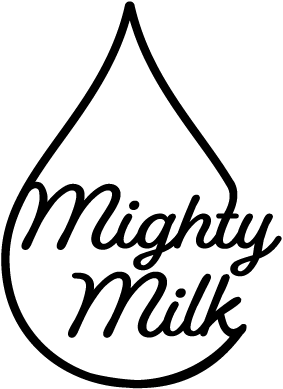There’s a big problem in the United States. It’s been going on for a very long time. And it’s time we talk about it.
Chat with any new mom, and odds are you’ll hear that she’s either struggling with breastfeeding, or has given up entirely on her hopes of nursing her baby. Evidence of breastfeeding difficulties are all around us. Maybe you’ve heard murmurs from friends or family—sore nipples, a baby who can’t latch, the nagging fear that baby isn’t getting enough milk. Or perhaps you’ve seen coverage from the New York Times, or in a slew of parenting publications, chronicling the many challenges of breastfeeding.
Statistics from the CDC paint an alarming portrait. Many of us parents are focused on baby safety and health. We buy organic clothes, cribs that don’t use sketchy chemicals, and glass bottles instead of plastic ones. And in general, if a pediatrician says to do something, we do it. But this is not true for the first and most important food we put into our babies’ bodies. The American Academy of Pediatrics recommends that babies should be exclusively breastfed (this includes pumped breastmilk) through the first six months of life. But that is not at all what is happening in reality. Today, 84% of mothers start off breastfeeding their babies at birth. Sounds pretty good, right? Almost…except for that number immediately nosedives. At month one, 59% of mothers exclusively breastfeed their babies; at month six, only 26% of babies are exclusively breastfed. Not quite so rosy a picture.
But here’s the thing. Despite the news coverage, despite the organizations dedicated to helping moms breastfeed successfully, and despite endless breastfeeding-focused social media groups, we aren’t stopping to ask why so many of us are struggling. After all, breastfeeding is the ticket to human survival. Our ancestors could not go to CVS and grab a can of formula. Our primate cousins, who successfully nurse their babies, don’t schedule appointments with lactation consultants. They don’t even have glider chairs, or multiple brands of nursing pillows to choose from! So what’s the deal with us? Would nature really have designed something that was once essential to human survival, and made it so hard, so painful, so distressing? Should feeding our babies—giving them life—really be such an immense challenge for the majority of us? Why do so many of the resources that exist seem to only address overcoming breastfeeding difficulties rather than preventing them?
We need to pause and ask why breastfeeding is so hard in the first place. Is there anything we can do to set ourselves up for success? Can we change the equation so the statistics aren’t so bleak?

This isn’t to say that breastfeeding is for everyone. Some mothers pump breast milk, either by choice or necessity. Some mothers formula feed from birth, and that’s perfectly fine. This isn’t at all about judging the needs and decisions of any mother or any family. It’s about the concerning fact that so many moms want to breastfeed their babies, and start off doing so, only to give up. To be sure, mothers who want to breastfeed encounter many obstacles. The shameful lack of maternity leave policy in the United States means that breastfeeding, especially past the first few weeks, is simply not a clear cut choice for moms who must return to work very soon after their babies are born. A survey of 2,852 workers showed that nearly one in four mothers return to work within just two weeks of having a baby. People of color face additional, systemic challenges that date back hundreds of years and persist today. Many hospitals, especially in poor areas, don’t have International Board Certified Lactation Consultants (IBCLCs) on staff to provide support after birth.
But Lex Beach, an IBCLC and Mighty Milk instructor, says many of the issues, including the lack of maternity leave, can be traced to one pervasive but little-discussed problem: we live in a bottle feeding culture. Our bottle feeding culture is not named or identified in the mainstream, but it is touches every aspect of newborn care. Our bottle feeding culture impacts how we hold our babies at the breast; how often we feed our babies; nearly all of our expectations for what newborn care should look like. And it is directly responsible for those dismal statistics here in the US. Lex argues that we need to recognize the ways living in a bottle feeding culture affects us as breastfeeding mothers, and reset our expectations for what newborn care should look like.
I started Mighty Milk because I was one of those statistics. I was one of the mothers who was determined to exclusively breastfeed my baby, but saw my hopes dashed even though I tried so hard to overcome my challenges. What I found while I was struggling was that there are resources that help with breastfeeding issues once they’ve already occurred. But there aren’t resources that are dedicated to preventing those problems all together, designed to help new parents get breastfeeding off to a great start from day one.
In our next post, Lex is going to answer some questions about bottle feeding culture and talk about the ways it affects the way we care for our babies. I interviewed many IBCLCs to lead Mighty Milk’s classes. I chose Lex because she doesn’t only help people solve problems; she tries to help us prevent them in the first place by educating us on what “normal” breastfeeding should look like. Subscribe to our blog below to get the rest of this series delivered to your inbox. Join us on Instagram to be part of the conversation. And together, let’s work to reverse those statistics and empower parents to establish rewarding, long-lasting breastfeeding relationships with their babies.


